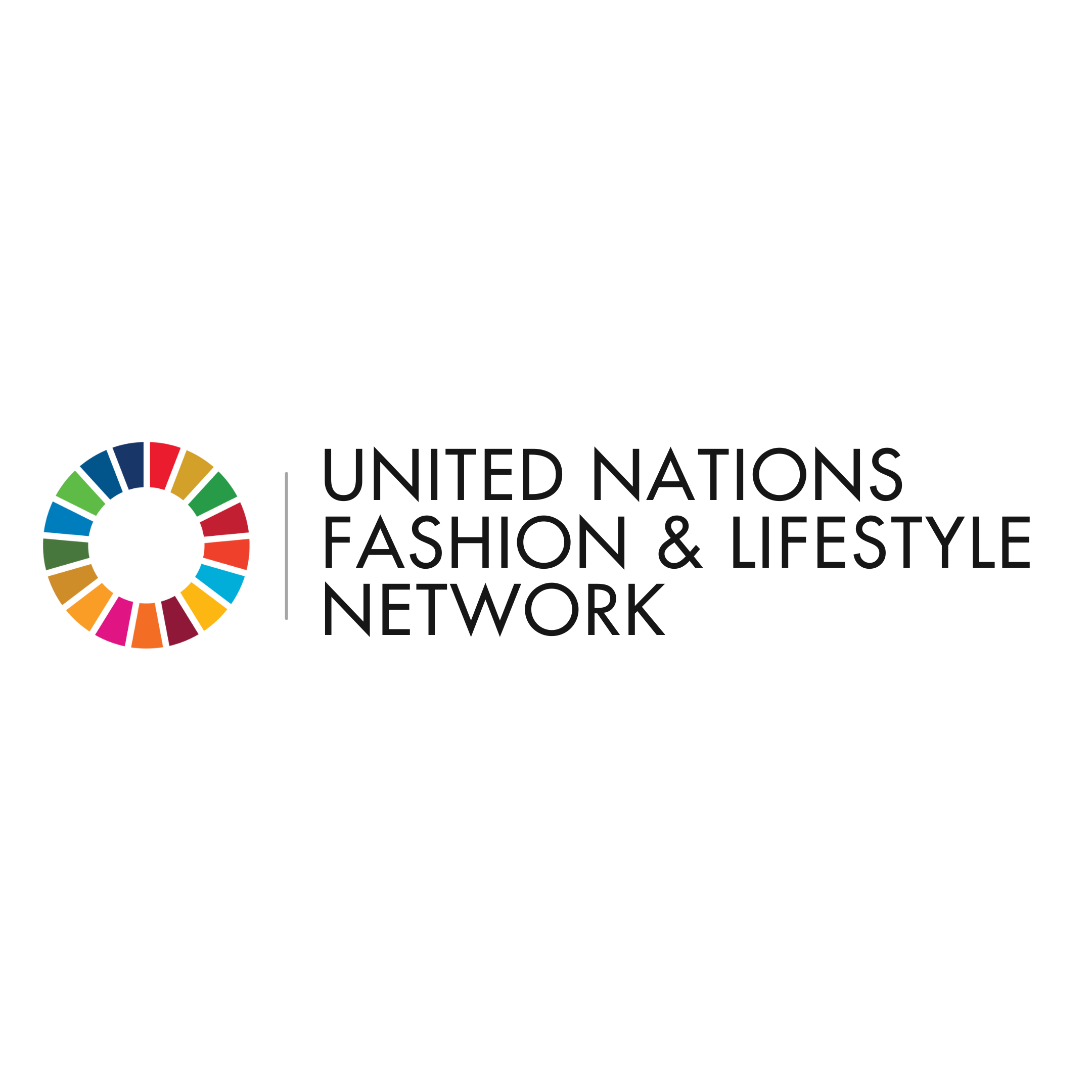Raw Revel
Raw Revel LLC
(
Private sector
)
#SDGAction53602
Description
With roots in India, Raw Revel has set out to make sustainable clothing mainstream and exciting. Amalgamating passions for street and punk alongside ethical manufacturing and material use, the label Raw Revel has been launched to serve US and India markets.
The four pillars of Raw Revel include recycling, education, marketplace and sales (REMS) will help Raw Revel become a self-sustaining label, taking sustainable clothing to the mainstream.
- Recycle Program – Recycle/Upcycle of used clothes
- Education Program – Awareness Programs for end-consumers
- Marketplace Program – Used clothing marketplace
- Sales Program – eCommerce store for GOTS certified new clothes
Based out of the USA and India, Raw Revel remains committed to sustainable manufacturing following GOTS and focusing on SDG 12 to ensure responsible consumption and production patterns for the clothing manufacturing industry.
The four pillars of Raw Revel include recycling, education, marketplace, and sales will help Raw Revel become a self-sustaining label taking sustainable clothing to the mainstream. The recycling program - create recycle program to enable recycling a target of >50% of fresh merchandise that is sold by Raw Revel the education program - market campaigns to focus not just on selling but recycling programs, reducing carbon footprint, etc. The marketplace program - an end-to-end marketplace to enable anybody to sell their clothes. This is tuned to encourage people to sell and reuse old clothing rather than dumping it into trash sales - front-end store for new sustainable clothing from Raw Revel.
The education program acts as a horizontal across all 4 key pillars of Raw Revel viz. (REMS – recycle, education, marketplace & sales). Publication of white papers as part of the education program is a key exercise for disseminating information across the industry.
Raw Revel’s focus is to publish white papers for each of our 4 main programs (REMS – recycle, education, marketplace & sales) to enable sharing of information across industries (fashion, packaging, ecommerce, etc.) and beneficiaries (consumers, manufacturers, workers, etc.) is one of the key components of our education program. Our goal is to publish a white paper every 6 months for each of these pillars thereby measuring to 2 white papers per year.
To enable proper dissemination of this information, Raw Revel would be allocating ~3% of total annual revenues towards the education program. These may be in the form of internal resources and non-profit contributions through various internal and external agencies.
Our mission is to create garments using sustainable practices and get each step validated by validating through Organizations like GOTS. We are committed to our goal of supporting artisans across the world including countries like India, US and preserving their craftsmanship and validating the complete lifecycle through independent agencies.
The four pillars of Raw Revel include recycling, education, marketplace and sales will help Raw Revel become a self-sustaining label taking sustainable clothing to the mainstream and reducing the carbon footprint for end-consumers.
- Recycle Program – The focus of the recycling program essentially is to bring back old clothes from consumers buying new clothes from Raw Revel and then identifying which ones can be upcycled, recycled, and resold (as-is or with minimal repairs) to be put back into a circular economy. These include clothes from all labels. As part of this program, we would be measuring every consumer's carbon impact through buying new clothes and returning old clothes and packaging.
- Education Program – The focus of the education program is to run awareness programs targeted towards end-consumers around sustainable fashion and circular economy.
- Marketplace Program – The marketplace program (used clothes marketplace) is aimed at providing a platform to end-consumers to directly sell their clothes to other end-consumers. These include clothes from all labels.
- Sales Program - Front-end store for new sustainable clothing (GOTS certified) from Raw Revel label. The key measurement criteria for sustainable manufacturing is GOTS certification for each lot of manufacturing under Raw Revel label.
Each of the 4 programs within Raw Revel have specific evaluation criteria for success. Raw Revel has set out with a goal on these metrics which would be tuned in future but act as a North Star for our goals.
Certifications like GOTS for each batch of manufactured clothing and the eventual supply chain traceability of our product and its life cycle. The goals that we have established for our programs are as follows:
- Recycle Program – Enable recycling a target of >50% of fresh merchandise that is sold by Raw Revel
- Education Program – 3% of revenues contributed towards Awareness Programs for end-consumers, upskilling workers, etc. towards non-profit efforts.
- Marketplace Program – Up to 20% of transactions on Raw Revel eCommerce platform are generated through used cloth sales (direct sales by consumers or indirect through Raw Revel)
- Sales Program – 0% deviation on GOTS certification for each lot of manufactured clothing under Raw Revel label
Raw Revel India Private Limited and Abarna Exports
SDGS & Targets
Goal 12
Ensure sustainable consumption and production patterns
12.1
Implement the 10-Year Framework of Programmes on Sustainable Consumption and Production Patterns, all countries taking action, with developed countries taking the lead, taking into account the development and capabilities of developing countries
12.1.1
Number of countries developing, adopting or implementing policy instruments aimed at supporting the shift to sustainable consumption and production
12.2
By 2030, achieve the sustainable management and efficient use of natural resources
12.2.1
Material footprint, material footprint per capita, and material footprint per GDP
12.2.2
Domestic material consumption, domestic material consumption per capita, and domestic material consumption per GDP
12.3
By 2030, halve per capita global food waste at the retail and consumer levels and reduce food losses along production and supply chains, including post-harvest losses
12.3.1
(a) Food loss index and (b) food waste index
12.4
By 2020, achieve the environmentally sound management of chemicals and all wastes throughout their life cycle, in accordance with agreed international frameworks, and significantly reduce their release to air, water and soil in order to minimize their adverse impacts on human health and the environment
12.4.1
12.4.2
(a) Hazardous waste generated per capita; and (b) proportion of hazardous waste treated, by type of treatment
12.5
By 2030, substantially reduce waste generation through prevention, reduction, recycling and reuse
12.5.1
National recycling rate, tons of material recycled
12.6
Encourage companies, especially large and transnational companies, to adopt sustainable practices and to integrate sustainability information into their reporting cycle
12.6.1
12.7
Promote public procurement practices that are sustainable, in accordance with national policies and priorities
12.7.1
Number of countries implementing sustainable public procurement policies and action plans
12.8
By 2030, ensure that people everywhere have the relevant information and awareness for sustainable development and lifestyles in harmony with nature
12.8.1
Extent to which (i) global citizenship education and (ii) education for sustainable development are mainstreamed in (a) national education policies; (b) curricula; (c) teacher education; and (d) student assessment
12.a
Support developing countries to strengthen their scientific and technological capacity to move towards more sustainable patterns of consumption and production
12.a.1
Installed renewable energy-generating capacity in developing and developed countries (in watts per capita)
12.b
Develop and implement tools to monitor sustainable development impacts for sustainable tourism that creates jobs and promotes local culture and products
12.b.1
Implementation of standard accounting tools to monitor the economic and environmental aspects of tourism sustainability
12.c
Rationalize inefficient fossil-fuel subsidies that encourage wasteful consumption by removing market distortions, in accordance with national circumstances, including by restructuring taxation and phasing out those harmful subsidies, where they exist, to reflect their environmental impacts, taking fully into account the specific needs and conditions of developing countries and minimizing the possible adverse impacts on their development in a manner that protects the poor and the affected communities
12.c.1
Amount of fossil-fuel subsidies (production and consumption) per unit of GDP
SDG 14 targets covered
| Name | Description |
|---|
Deliverables & Timeline
GOTS (or similar) Certification for every batch of clothing manufactured with traceability record
Traceable metrics for recycle program
Resources mobilized
Partnership Progress

Feedback
Action Network

Timeline
Entity
SDGs
Region
- Asia and Pacific
- North America
Geographical coverage
Other beneficiaries
Raw Revel’s direct beneficiaries are its employees, sustainable manufacturers and their workers, beneficiaries of the charities that it supports, consumers that buy the products that we make, and every stakeholder of the fashion industry, in which we include all living beings: everyone who lives on this planet breathes air, and needs water needs better fashion.
Manufacturers working with slow fashion (traditional fashion) and committed to ensuring sustainable consumption and production patterns for the clothing manufacturing industry are the most obvious and key beneficiaries of Raw Revel Program.
Our metrics including GOTS certification for every lot manufactured, means that GOTS as an organization would also be an indirect beneficiary of our program and through GOTS we also help existing traceability companies in expanding their traceability services to the farm level.
More information
Countries

Contact Information
Gaurav Kumar Malik, Chief Financial Officer

